Wooden posts and beams frame displays at Tokyo shop by Fumihiko Sano
A freestanding wooden framework supports the long display counter that runs through this contemporary crafts showroom in Tokyo by local architect Fumihiko Sano (+ slideshow).
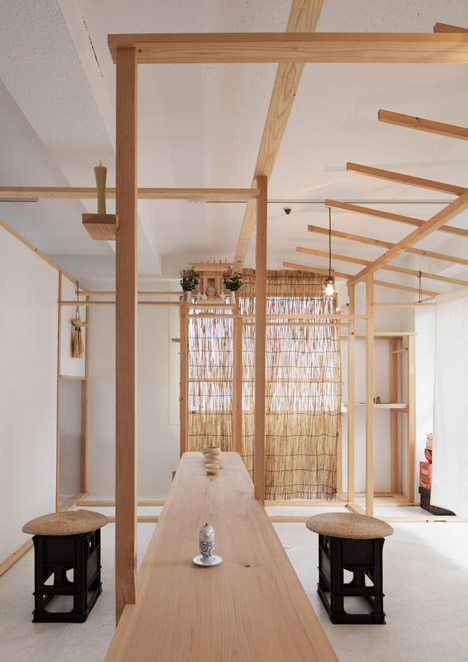
Located in Tokyo's Taito-Ku district, the En Yu-An shop was designed by Fumihiko Sano for Maruwakaya – a company that specialises in objects combining traditional crafts with modern design.
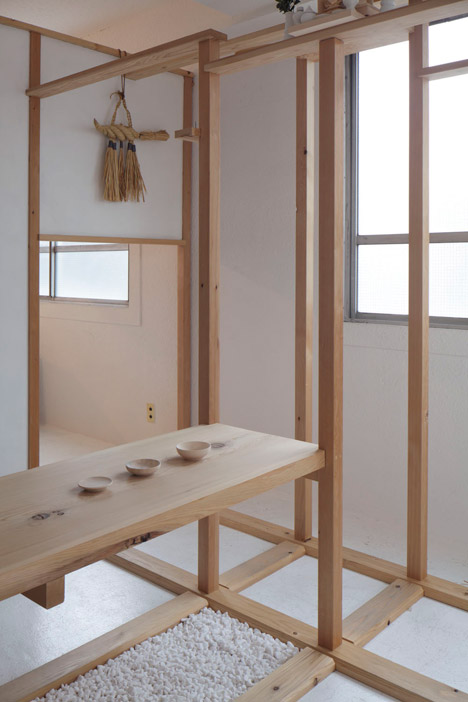
The interior was designed around the long narrow counter, which provides a place where products can be displayed and discussed.
"The counter made from Japanese cedar is employed as the centre of the room," explained Sano.
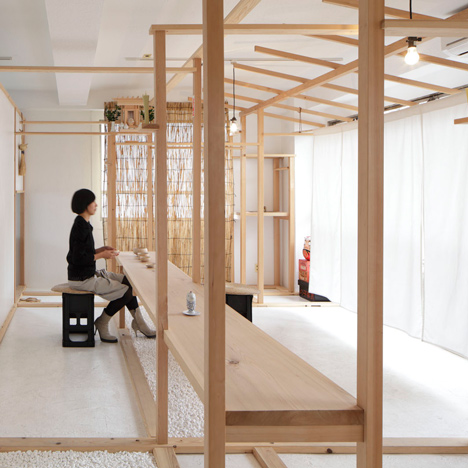
A simple post and beam structure supports the counter. It spreads outwards to the edges of the room but is not fixed to the existing surfaces at any point.
"The wooden structure does not affect the existing surfaces – it is simply placed inside the room, but is not fixed to the walls, floor or ceiling," said Sano.
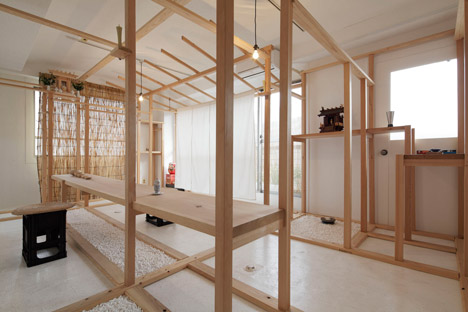
The vertical and horizontal elements offer subtle partitions for the interior and frame the route through the space from the entrance.
"The arrangements of the lintels and the pillars are appropriately organised in the room," said the architect. "These make visitors unconsciously sense the variation of the space."
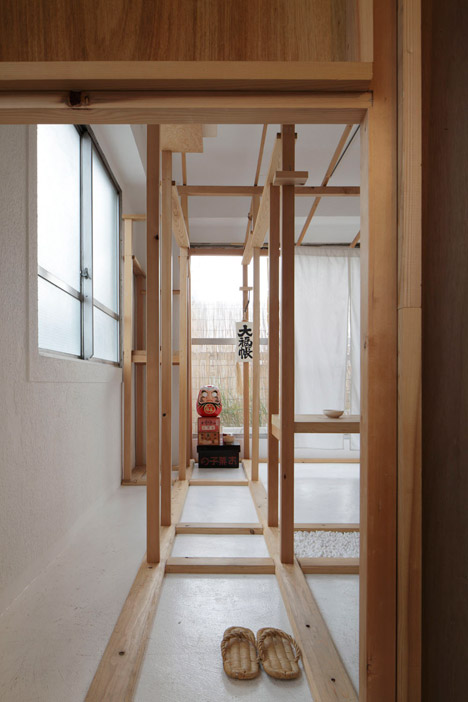
Shelving is built into the timber framework and is used to display the shop's stock, while candles and other decorative items are placed on small surfaces fixed to posts closer to the ceiling.
Traditional dowel joints were used to erect the framework and fix the horizontal surfaces in place.
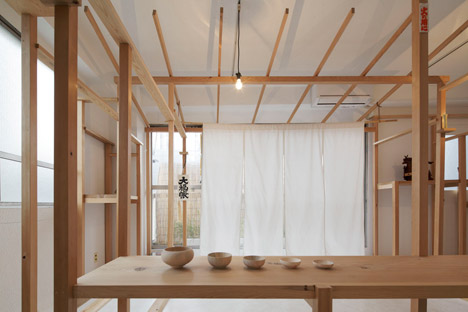
White pebbles are contained within the wooden frame beneath the counter, as well as below one of the shelving areas and next to a doorway in the back corner.
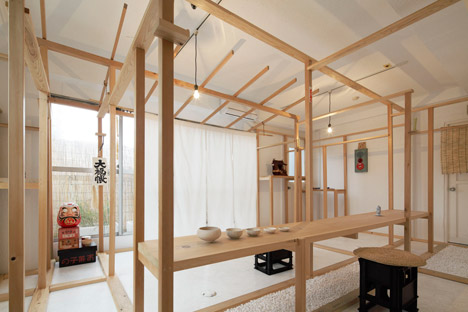
Large windows and glazed doors on one wall allow natural light to fill the room. The daylight is filtered through fabric panels suspended from the wooden structure and bamboo cane screens.
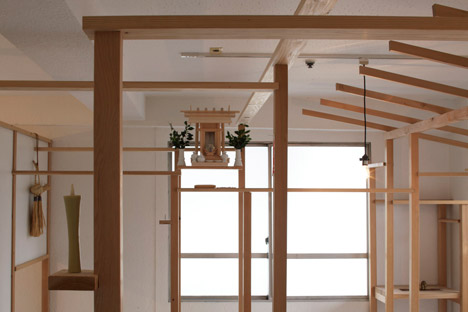
Naked light bulbs suspended from the ceiling offer supplementary illumination and provide a raw, industrial counterpoint to the otherwise natural material palette.
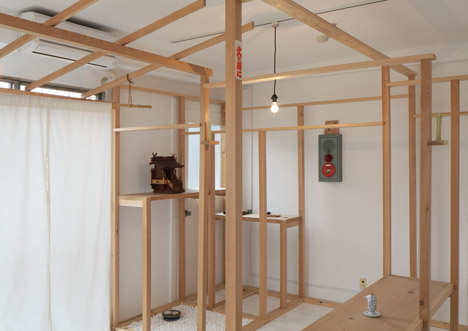
Photography is by Daisuke Shima for Nacasa & Partners.